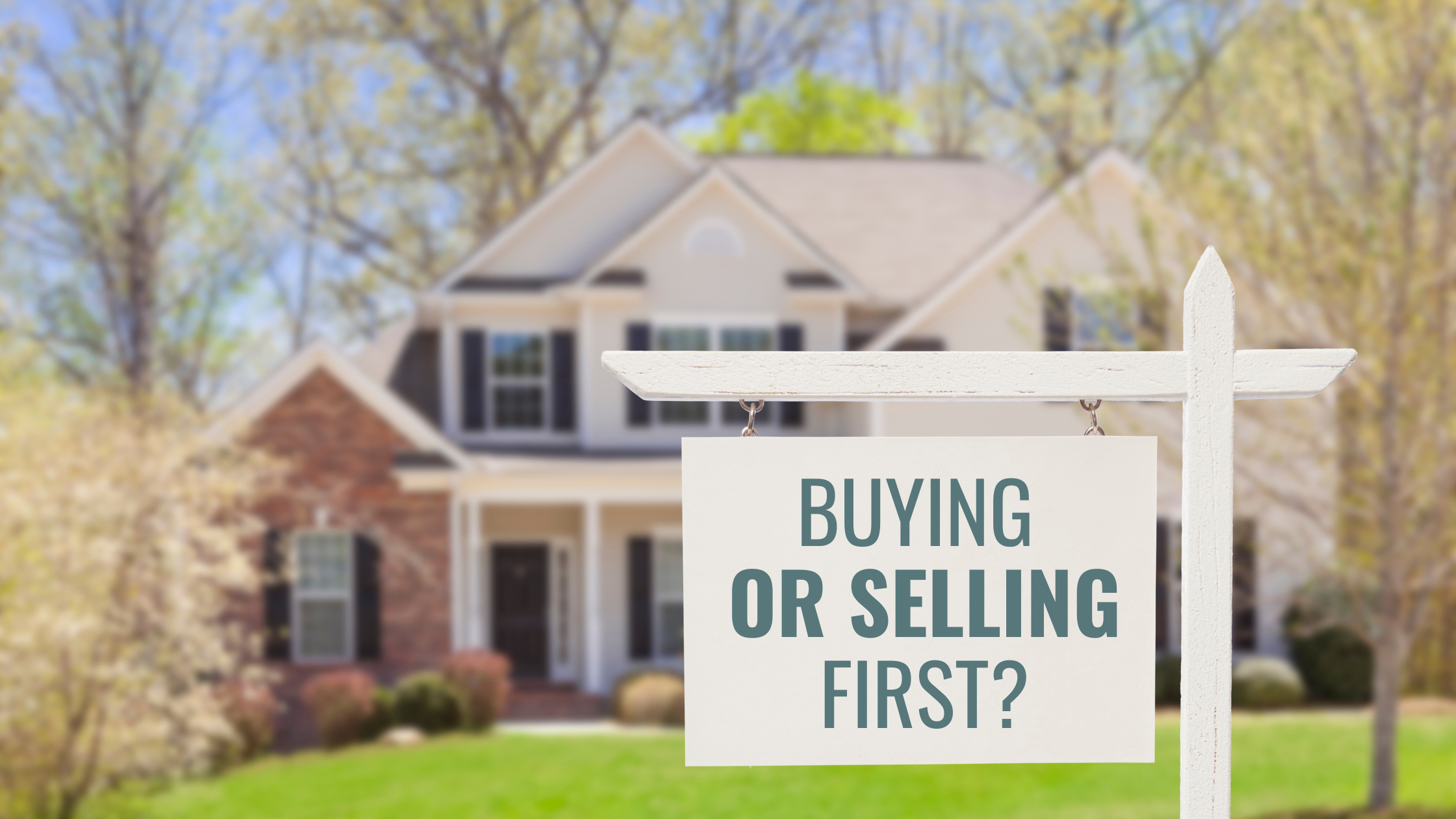If you are considering purchasing a second home, the decision to sell or buy a home first can be crucial. How do you make a move if you need the funds from your current home to buy the next one? What happens if you find a house you love but haven’t sold your house yet?
One of the biggest questions that homebuyers face when considering a move is whether to buy a new home before selling their current one, or wait until they have sold their current property before buying a new one. Each scenario presents unique benefits and drawbacks and it’s important to analyze them carefully. Today, we’re diving into the pros and cons of selling and buying at the same time!
Option 1: Subject To Sale Offers
A Subject To Sale offer is an offer on a property with a condition attached that the Buyer has to sell their own home before completing the purchase of their new property. When looking to sell and buy a house at the same time, Subject to Sale is the most traditional choice. It generally carries the lowest risk but can also be the hardest scenario to achieve.
Advantages to Subject To Sale
-
- Flexibility
- Lowest Financial Risk
- Housing Security
A Subject to Sale offer allows you to make an offer on a new home you love without the pressure of selling your current home first. It is the only option that grants the ability to buy and sell a home at the same time.
Additionally, this option presents the lowest financial risk. With a Subject to Sale, you aren’t committed to purchasing the new home until your current home has sold. In this scenario, you won’t have to hold two mortgages and you can use the proceeds of your own home to buy the next one.
Lastly, a Subject to Sale offer provides Housing Security. By lining up the purchase of your new home with the sale of your current property, there’s no chance of getting stuck in limbo without a home to live in.
Risks to Subject To Sale
-
- Difficult to Achieve Acceptance
- Time Clauses
- Pressure to Sell
So you’re probably thinking “why on Earth doesn’t everyone choose a Subject To Sale Offer?”
The short answer is that Sellers really prefer not to accept Subject To Sale Offers if they can help it. While this option has big advantages to Buyers, it poses some big disadvantages to Sellers trying to sell their properties quickly.
In a hot real estate market like we experienced in BC over the past 2-3 years, Sellers rarely considered accepting Subject To Sale Offers. Housing inventory was low and competition for properties was high. Sellers ultimately chose offers with less conditions and faster closing dates.
Now that the real estate market is more balanced, we are starting to see Subject to Sale offers popping back up. Nowadays, Sellers are more likely to accept a Subject to Sale offer, but with a time clause attached.

What is a Time Clause?
A time clause protects the Seller if they receive another offer during a Subject To Sale. In that situation, the first Buyers have a limited time frame (usually 48-72hours) to remove their conditions and finalize their purchase.
If they do not finalize the purchase within that time period, the Sellers can collapse the original offer and move on to the second.
As a Buyer, this can be really challenging because you either have to find the funds elsewhere to complete the purchase, hold two mortgages at the same time or collapse the deal and restart your search.
Another downside to a Subject to Sale, especially with a time clause, is that Buyers can feel pressured to sell their home. This might result in a property being sold for less in order to complete the buying purchase by a specific time.
The next option you can choose from instead of a Subject to Sale offer is to simply Sell Your Home before Buying a new one.
ADVANTAGES TO SELLING FIRST
The greatest advantage to this scenario is Financial Stability. By selling your property first, you know exactly how much money you have to spend on your next home. Having the cash in hand means that you will be able to negotiate confidently on your new purchase and avoid overextending yourself financially.
Selling first can also avoid the stress of owning two properties at once or feeling the crunch to buy and sell at the same time. But it does come with a major risk.
RISKS TO SELLING FIRST
If you are not able to find another property to buy or you can’t line up the dates of your new purchase with the closing dates of your sale, you might get stuck in limbo without a roof over your head.
If you are considering Selling before Buying, it’s crucial that you have a Plan B just in case you need to move out of your current home and can’t move into your new home right away.
For some, that may be a short-term rental or staying with family/friends. Be sure to also take into account potential added costs for things like temporary housing, storage of your belongings or extra moving costs.
The key to this option is to be prepared with an action plan if the transaction doesn’t line up as you hoped.

Option 3: Buying Before Selling
The final scenario you can choose from is to Buy First, Sell After.
This option is more popular in a Sellers Market when inventory is low and demand is high. This usually means that Selling your home is easier but buying a home is more competitive.
ADVANTAGES TO SELLING FIRST
The advantage to Buying before Selling is that you can lock in your next home as quickly as possible and to take it off the market. It also ensures that no matter what, you aren’t left without a roof over your head
RISKS TO SELLING FIRST
The major disadvantage with Buying First is the financial risk. If you aren’t able to sell your home or line up closing dates, you may need to hold two mortgages at the same time. Although this might not seem like a likely scenario in a Sellers market, things can change quickly, and we’ve definitely seen how volatile the market can get in the past year.
A sudden change in market conditions can lead homeowners to not being able to sell their properties as quickly or for the price they hoped for. Just like Selling before Buying, the key in this scenario is to prepare ahead and to talk to your lender. Make sure to ask if Bridge Financing could be an option for you and consider all additional costs if you cannot sell your home before you take possession of the next one.
Last but not least, you can also work with your realtor to try and negotiate later closing dates on your purchase to buy you more time to sell your home.
In conclusion, there’s really no one-size-fits-all answer when it comes to the decision to sell or buy a home first. It’s important to consider your individual circumstances and weigh the risks carefully before making a decision.
No matter what, there is always a level of risk in real estate transactions, but the best way to mitigate it is to be prepare for the unexpected. Consider your goals and needs, talk to your lender and work with a trusted real estate professional.

